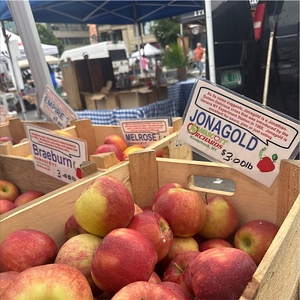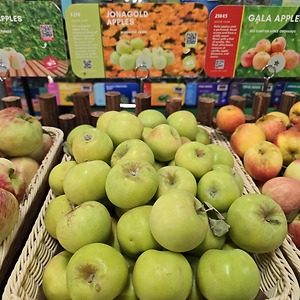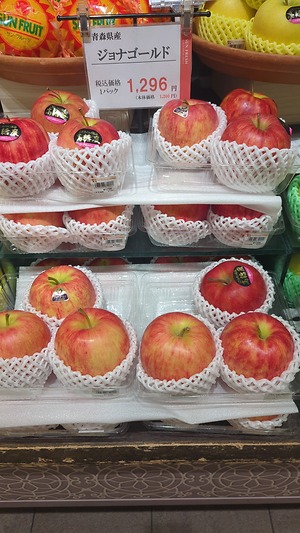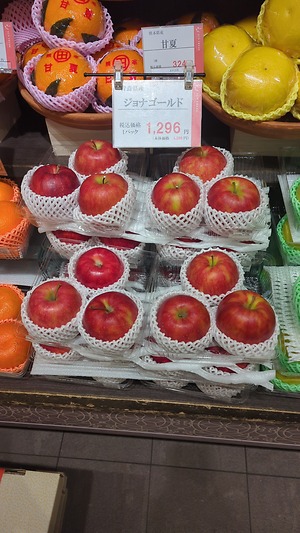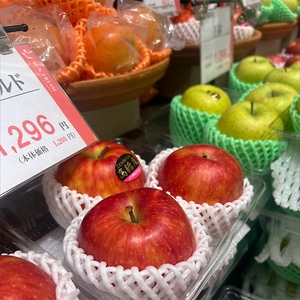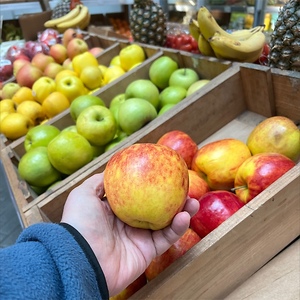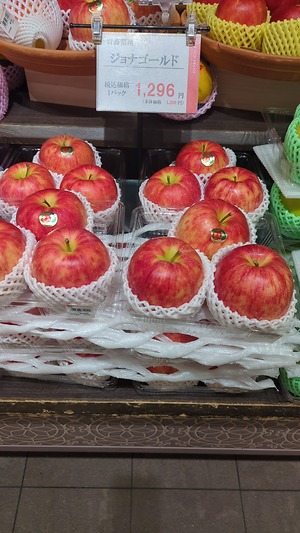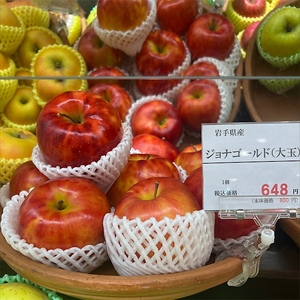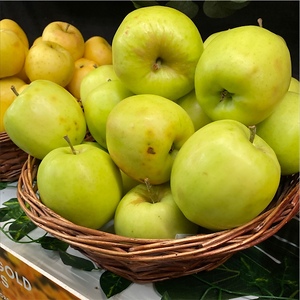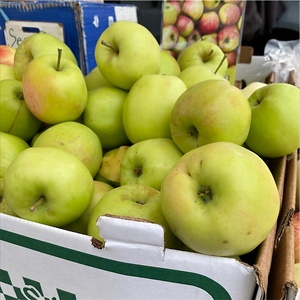


Jonagold Apples
Estimated Inventory, 88 ct : 0
Description/Taste
Jonagold apples are a medium to large varietal with a round, oblate, to conical shape. The apple's skin is semi-thin, smooth, taut, and tough with a faint sheen. One of the distinct characteristics of the variety is its coloring. Depending on the climate, Jonagold apples can be yellow-green, yellow, or a blend of orange and red. The variety can also have a yellow-green base hue and showcase bright red-orange blush and striping, leading the apples to vary in appearance in commercial markets. Underneath the surface, the ivory-to-white flesh is crisp, aqueous, and dense with a crunchy, breaking quality. The flesh also encases a small central fibrous core filled with tiny black-brown seeds. Jonagold apples have a subtly sweet scent and a balanced blend of sugar and acidity, creating a mild, sweet, and tangy taste with floral, honeyed, and fruity nuances.
Seasons/Availability
Jonagold apples are available in the early fall through winter.
Current Facts
Jonagold apple trees, botanically classified as Malus domestica, are an American variety belonging to the Rosaceae family. The cultivar was developed in the mid-20th century and was selectively bred to create a commercial apple with improved size, flavor, and taste. Jonagold apples grow on semi-dwarf to dwarf trees, ranging from 3 to 5 meters in height, and are a triploid cultivar, meaning the variety has three sets of chromosomes instead of two. This genetic trait allows the trees to produce large fruits, depending on the growing environment. The name Jonagold is a blend of the variety's parent cultivars, Johnathan and Golden Delicious apples, and apple enthusiasts favor the cultivar for its fast-growing nature, cold tolerance, and large fruits with extended storage capabilities. Jonagold apples are widely cultivated across the United States, Europe, and New Zealand, and the trees are popularly planted in home gardens as an ornamental. In the modern day, Jonagold apples are a well-known commercial variety sold through fresh markets, grocers, and distributors as a multi-purpose, fresh eating, and cooking apple.
Nutritional Value
Jonagold apples are a source of fiber to regulate the digestive tract, potassium to balance fluid levels within the body, and vitamin C to strengthen the immune system while reducing inflammation. The apples also provide small amounts of copper to develop connective tissues, magnesium to control optimal nerve functioning, calcium to build strong bones and teeth, vitamin A to maintain healthy organ functioning, and other nutrients, including iron, vitamin K, vitamin E, manganese, and zinc. The vibrant red hues within the skin indicate the presence of anthocyanins, pigmented compounds with antioxidant-like properties to protect the cells against the damage and oxidative stress caused by free radicals.
Applications
Jonagold apples have a sweet-tart flavor suited for fresh and cooked preparations. The variety was bred to be eaten straight out of hand and is popularly consumed as a snack. Jonagold apples are also chopped into salads, mixed into fruit medleys, or layered as a crisp addition to sandwiches. Try slicing Jonagold apples and dipping them in nut butter, caramel, or chocolate, or the whole apple can be covered in caramel as a festive fall treat. In addition to fresh preparations, Jonagold apples can be simmered into soups, minced into sausages, or added to stuffings. Jonagold apples can also be made into apple butter, cooked into jams and other preserves, and simmered into sauces. Beyond savory cooked dishes, Jonagold apples are commonly baked into pies, cakes, muffins, crisps, cobblers, and streusels. The fruits can also be baked whole, wrapped in puff pastry, or sliced and sauteed in browned butter and cinnamon. Jonagold apples have a sweet and acidic juice, lending themselves well to cocktails, cider, juice blends, and smoothies. The apples can also be canned or dried for extended use. Jonagold apples pair well with nuts such as pecans, walnuts, and almonds, vanilla, maple syrup, honey, brown sugar, and spices such as cinnamon, cloves, and nutmeg. Whole, unwashed Jonagold apples will keep for several weeks when stored in a cool, dry, and dark place. The fruits can also be stored in the refrigerator.
Ethnic/Cultural Info
Jonagold apples were awarded the Outstanding Fruit Cultivar Award in 1988 by the American Society for Horticultural Science, also known as ASHS. This award has been given annually since 1987 at the annual conference of the Society, and Jonagold apples were the second cultivar to be recognized. The award acknowledges fruits that have significantly impacted the commercial industry or made advancements in the scientific community. Before they became a worldwide cultivar, Jonagold apples were initially promoted by Dr. Roger Way, a professor and breeder involved in releasing the variety from Cornell University. Dr. Way began his journey at Cornell as a research associate in 1949 and advanced through the department as an assistant professor and later department head in 1974. After his help in releasing several successful apple cultivars from the program, including Empire and Jonagold apples, Dr. Way became an ambassador for the breeding program and worked with the media to promote the new varieties. In one interview, Dr. Way mentioned that he would sample around 200 apples daily to taste and evaluate new cultivars being developed in the program.
Geography/History
Jonagold apples are native to the United States and were developed in the 1940s at the New York State Agricultural Experiment Station of Cornell University's College of Agriculture and Life Sciences. The variety is a cross between two American cultivars from the 19th century: Golden Delicious and Johnathan apples. Jonagold apples were created as part of a program to develop new apple cultivars for commercial production. The apples were studied and evaluated for several years before they were selected as a new variety in 1953 through the efforts of breeder Dr. Roger Way and were commercially released in 1968. After their release, Jonagold apples were chosen by large and small-scale growers across the United States and are planted in the Pacific Northwest, the Midwest, and Eastern states. Jonagold apples were also introduced to Europe, where the variety saw widespread success in Belgium. It is reported that Jonagold apples are one of the top commercially grown apples in Belgium, and the variety thrives in cooler conditions, making them suitable for cultivation throughout Europe. Jonagold apples are also grown in New Zealand. When in season, Jonagold apples are sold through fresh markets, direct from growers, select grocers, and distributors worldwide.
Recipe Ideas
Recipes that include Jonagold Apples. One



